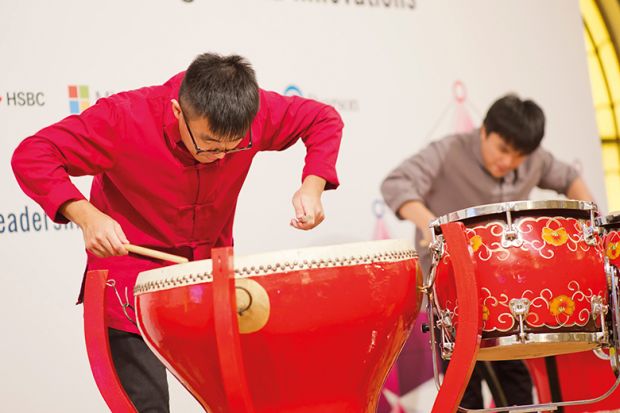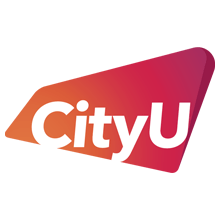Artificial intelligence is changing not only what is required of universities in what they teach, but also how they work, the Times Higher Education Leadership and Management Summit heard.
In a break-out session organised by Elsevier, which looked at universities and leadership in an AI-driven world, institutional analytics specialists said AI was influencing university administrators in much the same way that it was affecting students – by switching the emphasis of their work away from cognitive ability and on to “social and emotional competences” where humans had the “edge”.
The event at the summit – hosted by City University Hong Kong (CityU) – heard that machines were better at handling structured data because they were free of “cognitive biases” and unfazed by vast amounts of information – attributes ideally suited to tasks such as managing admissions, monitoring student progress and even designing curricula.
Alison Lloyd, director of institutional research and planning at Hong Kong Polytechnic University (PolyU), said that AI would give university leaders more scope to apply their understanding of cultural values, strategic direction and vision – qualities that machines could not replicate. “AI will help us move to a much better place,” added Dr Lloyd.
She said that when humans were confronted with large amounts of data, they tended to use “heuristics” to simplify the information and make snap decisions. “That doesn’t do the data justice because we may not see some of the connections,” she told THE.
“AI may be able to find connections that we may not have thought about. It also helps bring interdisciplinary areas together because it doesn’t have the sense of boundary that we would have.”
Dr Lloyd said that PolyU was investigating the use of AI to help pinpoint the “critical characteristics” of successful students. The aim was not only to help the high-flyers but also to identify those at risk of failing.
She said AI programmes such as chatbots would play an increasing role in handling student queries. “Another area is analytics. AI is a great tool to start pushing towards more personalised learning.”
Christian Wagner, chief information officer at CityU, said that AI could help generate more personal relationships with students.
“I can predict future success, I can allocate resources, I can rethink my curriculum and I can give data-driven guidance that I could never give before,” he told the forum.
Professor Wagner said that an AI-assisted analysis of CityU student data had revealed a fascinating correlation. Without exception, students who achieved grade point averages of 3.4 or higher in their first semesters went on to graduate with first-class honours – demonstrating emphatically that the first semester should not be treated as a “honeymoon”.
“We can draw insights from the technology and combine them with our understanding of relationships to bring them to life, contextualise them and make them meaningful," he added.
Professor Wagner said that while academics traditionally handled student admissions, they should let AI “take over”. “Research shows that algorithms do it better because they learn from human behaviour,” he said.
Academics sometimes intervened to “override” AI rejections of candidates they considered worthy. “Research shows that these deviations from the algorithmic decisions are poor decisions,” Professor Wagner told the forum. “Overall the algorithm is smarter. Sadly, academics are very good at arguing.”
Chinese photonics expert Min Qiu said that Westlake University in Hangzhou, a newly established, ambitious, private institution where he is vice-president of research and public affairs, planned to apply AI in its teaching.
“The first batch of undergraduate students will be enrolled in 2023,” he told the forum. “We need to design a proper curriculum for them.”
Professor Qiu said that AI could help meet the challenges of devising unique curricula for students working in very small groups with no disciplinary boundaries. While the project was in its infancy, he said that Westlake was developing considerable AI expertise with up to 50 principal investigators researching the field.
Christopher Tremewan, secretary general of the Association of Pacific Rim Universities, said that universities had a history of ignoring emerging technologies. “If you mention sports and computer gaming, many academics will say: ‘What’s that got to do with us?’
But he added: “Eighty per cent of our students are playing it. It is changing the way we create communities. It’s changing the way we think, and there’s possibilities for academic learning as well.”
Dr Tremewan said universities must realise that AI, like computer gaming, was not merely a series of products but a medium that would change society. “How does a higher education community relate to this new phenomenon? Are we going to ignore it again or take it seriously? I would advocate the latter.”
POSTSCRIPT:
Print headline: Let machines ‘take over’ admissions
Register to continue
Why register?
- Registration is free and only takes a moment
- Once registered, you can read 3 articles a month
- Sign up for our newsletter
Subscribe
Or subscribe for unlimited access to:
- Unlimited access to news, views, insights & reviews
- Digital editions
- Digital access to THE’s university and college rankings analysis
Already registered or a current subscriber? Login












